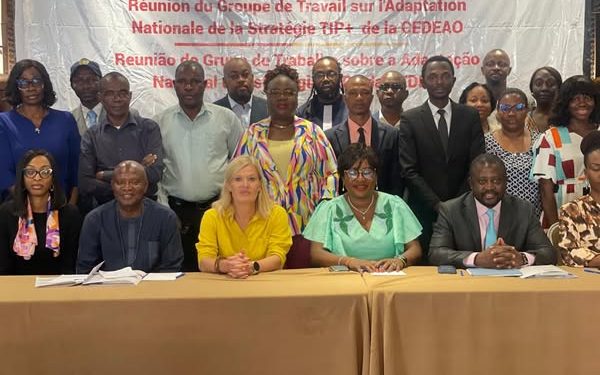Key national and international stakeholders have gathered in Freetown for a three-day Working Group Meeting to advance Sierra Leone’s implementation of the ECOWAS Strategy against Trafficking in Persons (TIP). The event was held at the Atlantic Hotel and convened by the Ministry of Social Welfare in collaboration with the national Anti-Trafficking in Persons Task Force.
The meeting brought together representatives from the Government of Sierra Leone, the European Union, ECOWAS, and civil society organisations to review existing frameworks and strengthen inter-agency and cross-border coordination in combating human trafficking.
Strengthening Legal and Policy Frameworks
In his opening statement, Mr. Dehunge Shaka, Executive Director of the Anti-Trafficking Task Force, reiterated Sierra Leone’s unwavering commitment to eradicating trafficking in persons. He underscored the urgent need for robust enforcement mechanisms and deeper collaboration across borders to dismantle trafficking networks.
Ms. Amala Obiokye Nwalor, Team Lead for Governance at the European Union Delegation, emphasised the EU’s continued support, stating, “Human trafficking is a grave violation of human rights, particularly affecting women and children. The EU remains committed to supporting regional strategies through policy reform and capacity-building.”
Delivering a keynote address, Attorney General and Minister of Justice, Hon. Alpha Sesay, outlined Sierra Leone’s legal instruments designed to combat trafficking. These include the Child Rights Act, the Sexual Offences Act, and the revised Anti-Trafficking in Persons Act, which aims to ensure more decisive legal action against perpetrators.
A Call for Regional Collaboration
Minister of Social Welfare, Hon. Melrose Karminty, emphasised that the fight against human trafficking requires collective action. “No single country can tackle this issue in isolation. We must harmonise ECOWAS strategies with national policies and foster intelligence-sharing and cooperation across borders,” she stated.
The meeting concluded with firm commitments to:
Enhance victim protection and rehabilitation services.
Strengthen cross-border law enforcement cooperation.
Expand vocational training and education to reduce the vulnerability of at-risk groups.
The working group’s outcomes will inform national policy direction and reinforce Sierra Leone’s alignment with ECOWAS and international standards in the fight against trafficking in persons.
Credit: Abu Bakarr Sama, SLENA













